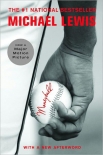Moneyball by Lewis, Michael (books to read in your 30s TXT) 📗

Book online «Moneyball by Lewis, Michael (books to read in your 30s TXT) 📗». Author Lewis, Michael
There was no avoiding just how important the 2002 amateur draft was for the future of the Oakland A’s. The Oakland A’s survived by finding cheap labor. The treatment of amateur players is the most glaring of the many violations of free market principles in Major League Baseball. A team that drafts and signs a player holds the rights to his first seven years in the minor leagues and his first six in the majors. It also enjoys the right to pay the player far less than he is worth. For instance, the Oakland A’s were able to pay their All-Star pitcher Barry Zito $200,000 in 2000, $240,000 in 2001, and $500,000 in 2002 (when he would win the Cy Young Award as the best pitcher in the American League) because they had drafted him in 1999. For his first three years of big league ball, Zito was stuck; for his next three years he could apply for salary arbitration, which would bump him up to maybe a few million a year but would still keep him millions below the $10-$15 million a year he could get for himself on the open market. Not until 2007, after he had been in the big leagues for six years, would Barry Zito, like any other citizen of the republic, be allowed to auction his services to the highest bidder. At which point, of course, the Oakland A’s would no longer be able to afford Barry Zito. That’s why it was important to find Barry Zito here, in the draft room, and obtain him for the period of his career when he could be paid the baseball equivalent of slave’s wages.
This year was the best chance they might ever have to find several Barry Zito’s. In 2001, the A’s had lost all three of their top free agents to richer teams. First baseman Jason Giambi had left for the Yankees for $120 million over seven years. Outfielder Johnny Damon had gone to the Red Sox for $32 million over four years. Closer Jason Isringhausen had signed with the Cardinals for $28 million over four years. The $33 million the three players would make each year was just $5 million less than the entire Oakland team. The rules of the game granted the A’s the first-round draft picks of the three teams that had poached their top talent, plus three more “compensation” picks at the end of the first round. Together with their own first round pick the A’s had, in effect, seven first-round draft picks. In the history of the draft going back to 1965 no team had ever held seven first-round picks. The question for Billy Beane was what to do with them. What he wasn’t going to do with them was what Grady had done last year, or what old baseball men had done with them for the past thirty-seven years. “You know what?” Billy said to Paul, before the draft-room meetings. “However we do it we’re never going to be more wrong than the way we did it before.”
Already the scouts had whittled, or thought they had whittled, the vast universe of North American amateur baseball down to 680 players. They’d pasted all the names onto little magnetic strips. They now had one week to reduce that pile of magnetic nameplates to some kind of order. They would do this, more or less, by a process of elimination. Erik would read a kid’s name off a sheet. The scout who knew the kid then offered up a brief, dispassionate description of him. Anyone else who had seen the kid play might then chime in. Then the floor was open for general discussion, until everyone was satisfied that enough had been said.
They begin that first morning by weeding out the pile. Some large number of amateur ballplayers were, for one reason or another, unworthy of serious consideration.
“Lark,” says Erik, for instance. Erik is Erik Kubota, the new young scouting director Billy hired to replace Grady. Erik used a giant wad of Copenhagen to disguise the fact that he was a brainy graduate of the University of California Berkeley, whose first job with the Oakland A’s had been as a public relations intern. That Erik had never played even high school ball was, in Billy Beane’s mind, a point in his favor. At least he hasn’t learned the wrong lessons. Billy had played pro ball, and regarded it as an experience he needed to overcome if he wanted to do his job well. “A reformed alcoholic,” is how he described himself.
Lark is a high school pitcher with a blazing fastball. He’s a favorite of one of the older scouts, who introduces him in a language only faintly resembling English. “Good body, big arm. Good fastball, playable slider, so-so change,” he says. “A little funk on the backside but nothing you can’t clean up. I saw him good one day and not so good another.”
“Any risk he’ll go to college?” asks Erik.
“He’s not a student type,” says the older scout. “I’m not sure he’s even signed with a college.”
“So is this guy a rockhead?” asks Pitter. Pitter (Chris Pittaro) is a graduate of the University of North Carolina who roomed with Billy when they both played for the Minnesota Twins and who Billy had long ago identified as a person willing to rethink everything he learned, or thought he had learned, playing baseball.
“Ah,” says the older scout, thinking about how to address the question. It’s possible for a baseball player to be too stupid for the job. It’s also possible for him to





Comments (0)